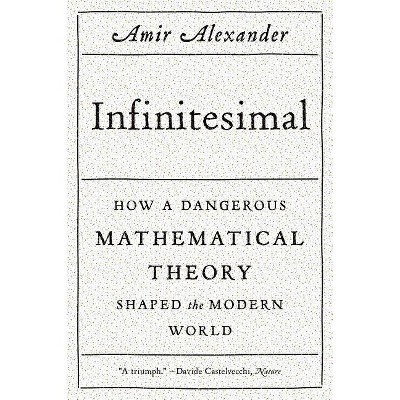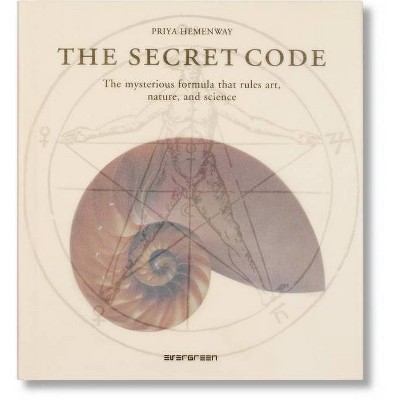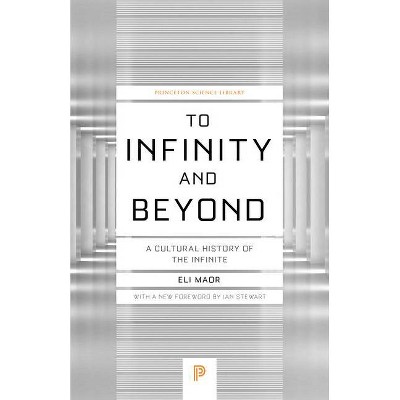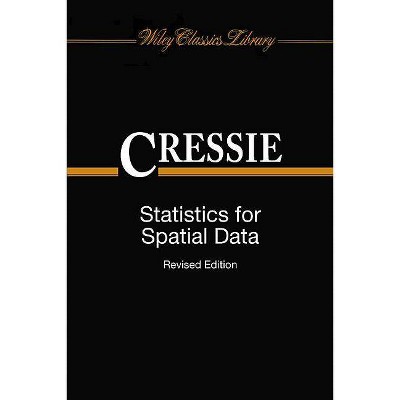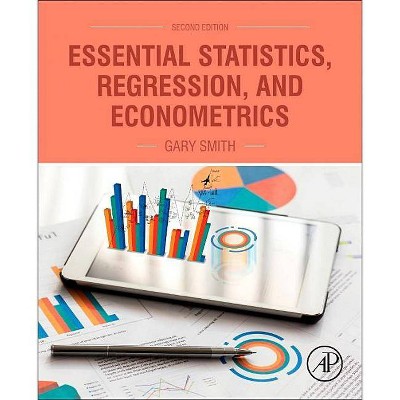Proof! - by Amir Alexander (Hardcover)
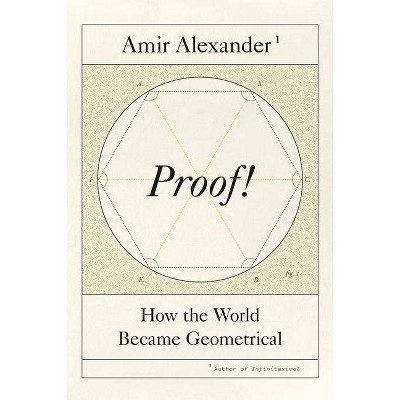
Similar Products
Products of same category from the store
AllProduct info
<p/><br></br><p><b> About the Book </b></p></br></br>The author offers an eye-opening narrative of how geometric principles fundamentally shaped the world.<p/><br></br><p><b> Book Synopsis </b></p></br></br><p><b>An eye-opening narrative of how geometric principles fundamentally shaped our world</b> <p/>On a cloudy day in 1413, a balding young man stood at the entrance to the Cathedral of Florence, facing the ancient Baptistery across the piazza. As puzzled passers-by looked on, he raised a small painting to his face, then held a mirror in front of the painting. Few at the time understood what he was up to; even he barely had an inkling of what was at stake. But on that day, the master craftsman and engineer Filippo Brunelleschi would prove that the world and everything within it was governed by the ancient science of geometry. <p/>In <i>Proof!</i>, the award-winning historian Amir Alexander traces the path of the geometrical vision of the world as it coursed its way from the Renaissance to the present, shaping our societies, our politics, and our ideals. Geometry came to stand for a fixed and unchallengeable universal order, and kings, empire-builders, and even republican revolutionaries would rush to cast their rule as the apex of the geometrical universe. For who could doubt the right of a ruler or the legitimacy of a government that drew its power from the immutable principles of Euclidean geometry? <p/>From the elegant terraces of Versailles to the broad avenues of Washington, DC and on to the boulevards of New Delhi and Manila, the geometrical vision was carved into the landscape of modernity. Euclid, Alexander shows, made the world as we know it possible.</p><p/><br></br><p><b> Review Quotes </b></p></br></br><br><p>"Alexander is especially fascinated by the way powerful people took hold of a geometrical way of thinking and used it for their own ends . . . In always clear and lively prose, [he] devotes particular enthusiasm to [Versailles] . . . Alexander's account acquires thematic sinew as he traces the historical quest for some sort of rational city." --Dan Hofstadter, <i>The Wall Street Journal </i> <p/>"If you think geometrical figures are abstract artefacts of the human mind, think again . . . Entertaining, enlightening and admirably well-focused." --Simon Ings, <i>The Telegraph</i> (UK) <p/>Lively . . . Bracingly enthusiastic . . . A deep immersion into geometric determinism at its most entertaining. --<i>Kirkus</i> <p/>Alexander's lucid and convincingly argued book fully demonstrates how ideas ancient in origin continue to shape the contemporary world. --<i>Publishers Weekly</i> <p/>By crafting an argument as elegant as a Euclidean proof, Amir Alexander demonstrates that ancient Greek geometry helped shape our modern political systems, from kingdoms to republics to empires. This is intellectual history at its finest: illuminating, surprising, and a cracking good read. --Steven Strogatz, Professor of Mathematics, Cornell University, and author of <i>Infinite Powers</i> <p/>Geometry is at the center of this retelling of the history of modernity. Amir Alexander brings his prodigious storytelling skills to the task, and the result is elegant, illuminating, and thoroughly entertaining. --Michael Harris, Professor of Mathematics, Columbia University <p/>"I couldn't stop reading Amir Alexander's <i>Proof!</i>, an enlightening centuries-long tour that reveals the secret geometry inscribed in our cities, our politics, and even our gardens." --Jordan Ellenberg, Professor of Mathematics, University of Wisconsin-Madison, and author of <i>How Not to Be Wrong: The Power of Mathematical Thinking</i> <p/> "Looking with Amir Alexander at the great world cities, we now see, beneath their political regimes, the imprint of Euclidean geometry. In this dazzling book we grasp for the first time the underlying rationality and order built into the geography of ancient and Renaissance Rome, Paris (inspired by Versailles), Washington, D.C., Berlin, imperial Saigon--the list is long. Vastly different forms of government and power took inspiration from the unity made possible only by geometry." --Margaret Jacob, Professor of History, UCLA</p><br><p/><br></br><p><b> About the Author </b></p></br></br><b>Amir Alexander</b> teaches history at the University of California, Los Angeles. He is the author of <i>Infinitesimal</i><i>, Geometrical Landscapes</i>, and <i>Duel at Dawn</i>. His writing has appeared in <i>The New York Times </i>and the <i>Los Angeles Times</i>, and his work has been featured in <i>Nature </i>and <i>The Guardian</i>, on NPR, and elsewhere. He lives in Los Angeles, California.
Price History
Cheapest price in the interval: 14.19 on October 28, 2021
Most expensive price in the interval: 14.19 on December 17, 2021
Price Archive shows prices from various stores, lets you see history and find the cheapest. There is no actual sale on the website. For all support, inquiry and suggestion messages communication@pricearchive.us
